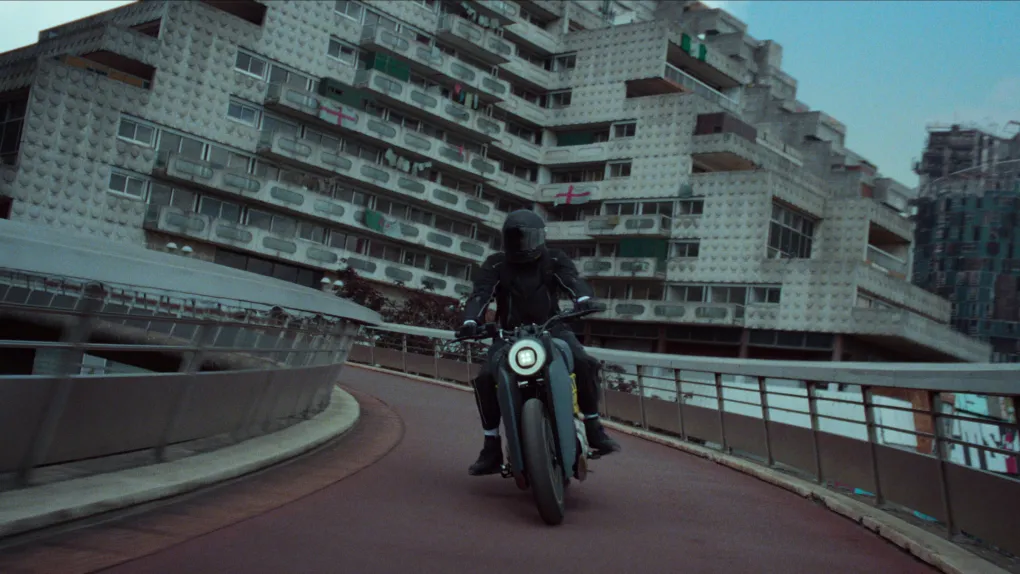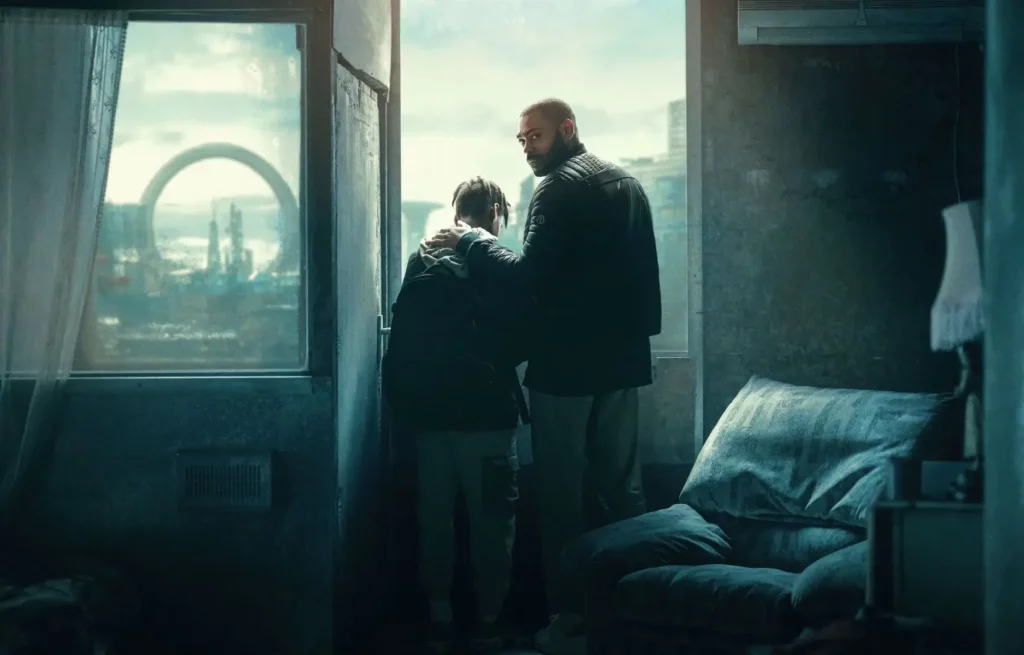The Kitchen is a movie release in Netflix directed by famous actor Daniel Kaluuya from Black Mirror Get Out and Nope and Kibwe Tavares.

This film unfolds in a dystopian future where social housing has vanished, leaving certain communities stranded and living unlawfully in these residences slated for reconstruction.
Real community and culture often come from the lower social classes

Similar to James Cameron’s portrayal in Titanic, a genuine sense of mutual aid and culture often emerges from the lower social strata.
In Asia, street markets and authentic food establishments frequently originate from individuals rather than franchises.
Today, even luxury brands targeting the middle class, aspiring to exude an elite aura, draw inspiration from streetwear—a culture owned by lower social classes. How paradoxical is that?
Individuals often find themselves compelled to work in jobs they don’t particularly enjoy, seeking an escape, while they are already living within their authentic community surrounded by genuine friends and culture

Around 2% of the population pursues a career, implying that 98% engage in jobs that lack substantial meaning. Thus, having a career stands as one of the greatest deceptions in modern society.
The reality is that those with careers often sacrifice other aspects of life to reach the pinnacle, predominantly men who attain an exceptional high status.
Interestingly, being part of the 2% can be alienating rather than connecting one with the majority of people. Friendship becomes rarer at the pinnacle, where individuals tend to be highly competitive and disagreeable.
Elevated and middle social classes often exude a sense of superficiality, bordering on artificiality, akin to a franchise
Resorts on paradisiacal islands reflect an environment where individuals shield themselves from authentic connections with the local population and the realities of their culture and life.
In contemporary times, individuals prioritize symbols and signs
Aiming not to genuinely belong but merely to project an image that seeks acknowledgment from their peers, particularly within the middle class.
Renting a well-designed apartment with a digital screen replicating luxurious view of the thames river is deemed superior to having a genuine view of life with children playing around.
In the past, individuals engaged in activities because they were passionate about the process and cared about the value they contributed to their community. Nowadays, people are more inclined to focus on appearances rather than genuinely embodying the role.
Conforming significantly is necessary to assimilate into another culture
In this movie, it’s noticeable that individuals outside the kitchen appear faceless, lacking identity. In reality, middle-class individuals often strive to assimilate by purchasing specific brands, like Ralph Lauren or Tommy Hilfiger, signaling and blending together.
Conforming entails losing your identity, humanity, destiny, and sense of adventure

In line with the character of Izi, it pushes people to stifle empathy and adopt a logical mindset, to the extent of becoming self-centered and forfeiting humanity, as seen when he abandoned his child to start a new life.
Large cities are squeezing out the middle class
Nowadays, acquiring a decent-sized apartment in major cities such as Paris or London is nearly impossible for anyone but multi-millionaires.
It’s unnecessary to emphasize that such assets are frequently accessible only to those with generational wealth.
Construction projects prioritize profits over well being
Construction companies and politicians share the common objective of maximizing land utilization through housing or malls, driven by profit motives. As areas develop, they often become less accommodating to lower social classes.
For instance, regulations such as parking restrictions and anti-pollution laws in Paris can be perceived as measures that indirectly discourage lower-class individuals from entering the city.
Disparity of ethnicity in social housing
The portrayal of diversity and racism is evident in the kitchen, where a majority of individuals are of African ethnicity.
This depiction reflects the unfortunate reality observed in the demographics of social housing in France and Europe.
In the movie policemen often lack a distinct face or identity
Policemen often lack a distinct face or identity, functioning at times as mere enforcers for a totalitarian state. They do as they are told just like the military.
The Gilet jaune episode in France serves as a fitting example, highlighting the conflict between the government and the genuine citizens.
Social housing neglects considerations of well-being and design

The kitchen in the film mirrors a real French ghetto: Damiers de Dauphiné, Paris. The atypical architecture of such places reveals their nature as social housing projects, characterized by concrete structures and a predominantly gray aesthetic.
In contrast, residences for the upper classes typically showcase more glass, greenery, and sometimes even incorporate water features.
The lower class derives meaning from small things in life

The lower class derives meaning from small items like a decorative lamp, while the wealthy primarily view such items as symbols to impress others.
It could also be something as simple as coming together as a close-knit family, sharing a meal and enjoying life without the necessity of owning or using expensive goods.
An eye for an eye
The repercussions from the kitchen mirror those in real life. In France, during protests, individuals from lower social classes may attempt to incite chaos. Breaking into stores or unleashing uncontrolled violence.
Informations
Netflix link : https://www.netflix.com/title/81557731
Our video production : https://www.neonnight.fr/en/


GIPHY App Key not set. Please check settings